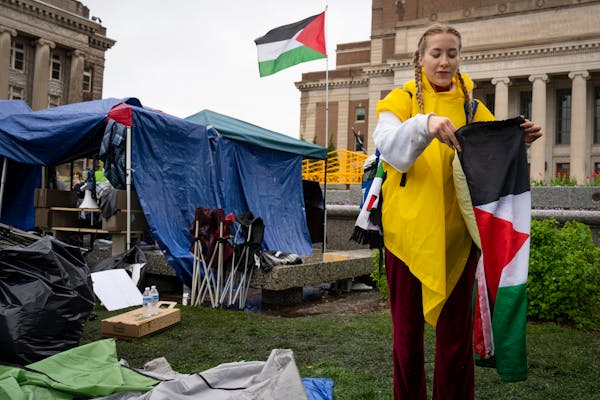Shortly after midnight on June 5, 1968, Sen. Robert F. Kennedy was shot in Los Angeles while seeking the Democratic presidential nomination. Sen. Hillary Clinton's recent reference to the event made news -- but mainly in terms of the current campaign.
Folklore casts a successful RFK on the way to nomination. In fact, he was struggling hard when death took him. He had just been defeated by the other anti-Vietnam War candidate, Sen. Eugene McCarthy, in the important Oregon primary -- a fact overlooked in most contemporary media recounting of those days.
A big win in the June 4 California primary might have undone that damage, but Kennedy barely edged out McCarthy in the vote. Democratic Vice President Hubert Humphrey had lined up a majority of convention delegates even before that primary.
And yet, there is just a chance that RFK could have secured the nomination. Had publicly uncommitted Chicago Mayor J. Daley decided to support him, other Democratic power brokers could have been swayed, especially in the violent turbulence of the 1968 Chicago convention.
Beating the odds, in the context of privilege, sums up Kennedy's distinctive path. The one Kennedy brother who was short, slight and lacking in natural athletic ability, he was also the only one to win a Harvard letter in varsity football. Teamster leader Jimmy Hoffa, a particularly dangerous enemy, described him as "the runt of the litter." In light of what the runt accomplished, this could be viewed as an unintentional compliment.
In the political storm immediately sparked by John F. Kennedy's announcement that Bobby would be attorney general, the president-elect quipped that he wanted to give his brother a little useful experience before the young man went out to practice law.
One domestic issue always on the front burner in the Kennedy administration was organized crime. Attorney General Kennedy was relentless in pursuing the mafia, and a very large number of gangsters had been imprisoned when President Kennedy visited Dallas. His assassination abruptly ended this crusade, and nearly a decade passed before the Racketeer Influenced and Corrupt Organizations (RICO) legislation reignited the effort.
In foreign policy, anti-Castro exiles' failed Bay of Pigs invasion of Cuba clouded the administration from the start. The White House didn't overcome that image of weakness until its success in the Cuban missile crisis the following year.
After the Bay of Pigs, the Kennedy brothers greatly expanded efforts begun under President Eisenhower to disrupt the Cuban regime and assassinate Fidel Castro. The attorney general directly ran top-secret "Operation Mongoose," which included recruiting some of the most violent mercenaries money could buy.
After JFK was assassinated, people around Robert Kennedy were puzzled by his marked lack of interest in pursuing vexing questions concerning possible conspiracy. In light of current knowledge, RFK avoided going down that dark, twisted road at least in part because he feared coming face to face with himself.
On his own after Dallas, RFK secured election to the Senate and immediately became a very public champion of civil rights and the poor. Over time, he became a critic of the Vietnam War, readily acknowledging his responsibility in creating the problem.
After being shot, Kennedy lingered for two days. Doctors concluded there was absolutely no hope of recovery; the bullet wounds in his brain were too devastating. Life support had to be removed because his heart refused to stop beating.
Arthur I. Cyr is a professor at Carthage College and the author of "After the Cold War." He wrote this article for the Scripps Howard News Service.
![There are "over a million tons [of PFAS] produced globally each year," Ali Ling writes. "That’s enough to contaminate the volume of all oceans on ea](https://arc.stimg.co/startribunemedia/KXZZJHFD37YQDWIQAKWDM235DY.jpg?h=91&w=145&fit=crop&bg=999&crop=faces)
We should mitigate PFAS at the source
Bolster safeguards after cyberattack


